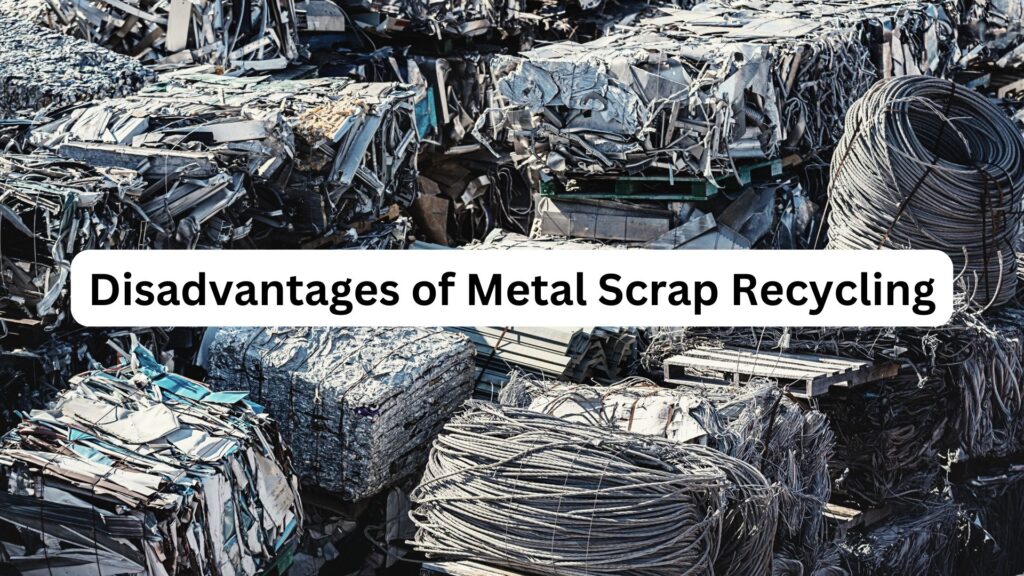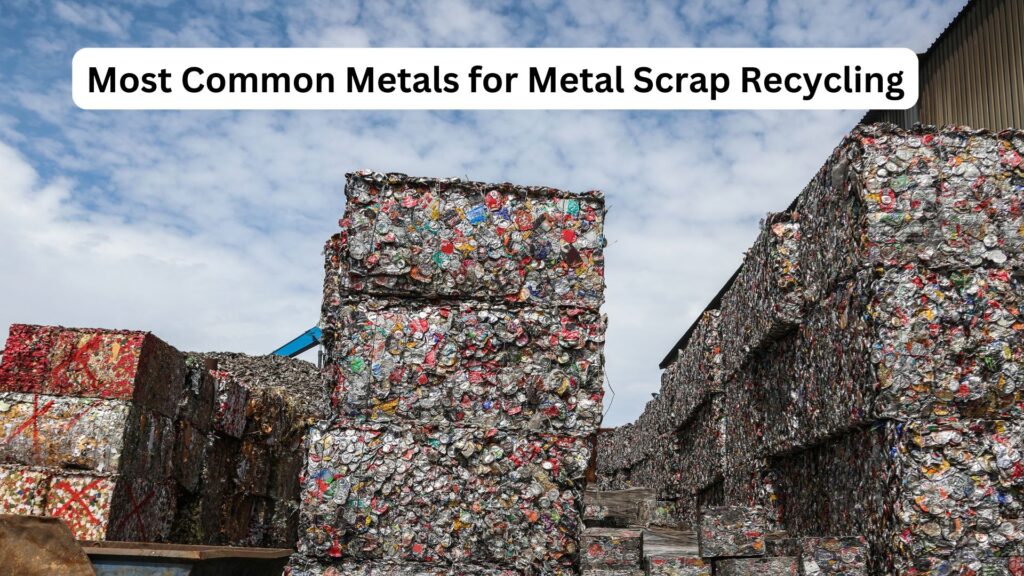Introduction
Metal scrap recycling has become an important process in the modern world. It offers many benefits such as environmental protection, resource conservation, and energy savings. However, some disadvantages of this process cannot be ignored. In this article, we will discuss in detail the advantages and disadvantages of metal scrap recycling.
The advantages of metal scrap recycling
1. Contribution to environmental protection
Metal scrap recycling is extremely beneficial for the environment. Recycling reduces the extraction of metal from new mineral mines, which can prevent the exploitation of natural resources. Also, this process helps reduce atmospheric pollution, as less energy is used during recycling, and greenhouse gas emissions from raw metal production are also reduced.
2. Energy saving
Metal scrap recycling saves a lot of energy. Mining, transporting, and processing raw metal consumes a lot of energy, while recycling does not require all these processes. For example, aluminum recycling consumes about 95% less energy than raw aluminum.
3. Reduction of waste
Recycling scrap metal reduces the amount of waste. Scrap metal is recycled into new products, which prevents the pile of metal-based waste in landfills. This also helps in reducing environmental hazards.
4. Employment opportunities
The metal scrap recycling industry creates new jobs. Recycling plants require workers who help collect, process, and recycle scrap metal. In addition, various business activities are also carried out to reuse scrap metal, which increases employment opportunities.
5. Economic benefits
Metal scrap recycling is also beneficial from an economic perspective. Recycling does not reduce the supply of raw materials, which reduces price volatility. Also, the recycling industry generates income, which contributes to economic growth at the local and national levels.
6. Protecting natural resources
Metal scrap recycling protects natural resources. When we recycle scrap metal, we do not need to dig new mines. This not only conserves minerals but also preserves natural biodiversity.
Disadvantages of Metal Scrap Recycling

image credits: canva.com
1. High initial cost
Although the benefits of recycling are many, the initial investment in the process can be high. Setting up recycling plants requires high-tech equipment and machines, which cost a lot. Apart from this, the recycling process also consumes energy, which can be costly at times.
2. Quality problems
Sometimes the quality of scrap metal is not up to par with new metal. Scrap metal often contains other elements, making it difficult to recycle. Products made from this type of metal may degrade in quality, which can affect their functionality.
3. Environmental hazards
Although metal scrap recycling is beneficial for the environment, it can pose environmental risks if recycling plants are not operated properly. If the residual chemicals are not disposed of properly, they can cause water, air, and soil pollution.
4. Space requirement
Recycling plants require ample space to operate. These plants store large amounts of scrap metal and require large storage space. Operating these plants in small areas can be difficult, and may create spatial problems.
5. Less functional products
Sometimes the performance of products resulting from recycling may be less than that of products made from raw materials. Especially if the reused metal contains other impurities, the performance of the products made from it may decrease, causing problems in the long run.
Most Common Metals for Metal Scrap Recycling

image credits: canva.com
1. Aluminum
Aluminum is a metal that is easy to recycle and its recycling process consumes very little energy. Most aluminum products such as cans, boxes, and other materials can be easily recycled.
2. Iron and steel
Recycling of iron and steel is also a common and beneficial process. A large amount of steel is recycled through this process, which is used in the construction industry and other sectors.
3. Copper
The demand for copper is always high, and it is a valuable metal that can be recycled. Copper scrap can be recycled to obtain high-quality copper, which is used in electronics and other industries.
Conclusion
Metal scrap recycling is an important and profitable process that can benefit the environment, economy, and society. However, it does have some disadvantages, such as high initial costs and quality issues. Still, if implemented correctly, the benefits outweigh the benefits and it can be a sustainable and cost-effective solution.
FAQs
1. What are the benefits of metal scrap recycling?
Metal scrap recycling has many benefits:
- Saving natural resources: Recycling requires less raw materials to make new metal products.
- Energy savings: Metal recycling reduces energy consumption, which is lower than traditional mining and metal production.
- Pollution reduction: The recycling process also reduces pollution, as it avoids the dust, gases, and other harmful pollutants associated with new mining.
- Economic benefits: Reusing scrap metal reduces costs for industries and creates employment opportunities.
2. Does metal scrap recycling have any negative impact on the environment?
Metal scrap recycling does not have any significant negative impact on the environment, but in some cases:
- Metal-related chemical pollution: Some recycling processes may cause heavy metal and chemical pollution.
- Energy Requirements: Some specific metal recycling processes can be high in energy consumption, which can be negative from an environmental perspective.
3. Is metal scrap recycling expensive?
Metal scrap recycling is usually not expensive. However, some factors, such as:
- Transportation and treatment costs can affect the total cost of recycling.
- The compilation process may require time and resources, which can sometimes increase the cost. However, the long-term benefits and savings of natural resources can outweigh these expenses.
4. Can all types of metal scrap be recycled?
Most metal scrap can be recycled, but certain types of metals cannot, such as:
- Common metals such as aluminum and iron can be easily recycled.
- Sergeant metal and special alloys may require a more complex process to recycle. Therefore, some metal scrap may be difficult to recycle, but most can be recycled.
5. What are the safety concerns associated with metal scrap recycling?
There may be some safety concerns during metal scrap recycling:
- Knives and sharp-edged metal scraps pose a risk of injury.
- Chemical pollution and gases released during metal refining can cause respiratory problems.
- The use of industrial equipment can lead to accidents, so it is important to follow safety measures.
